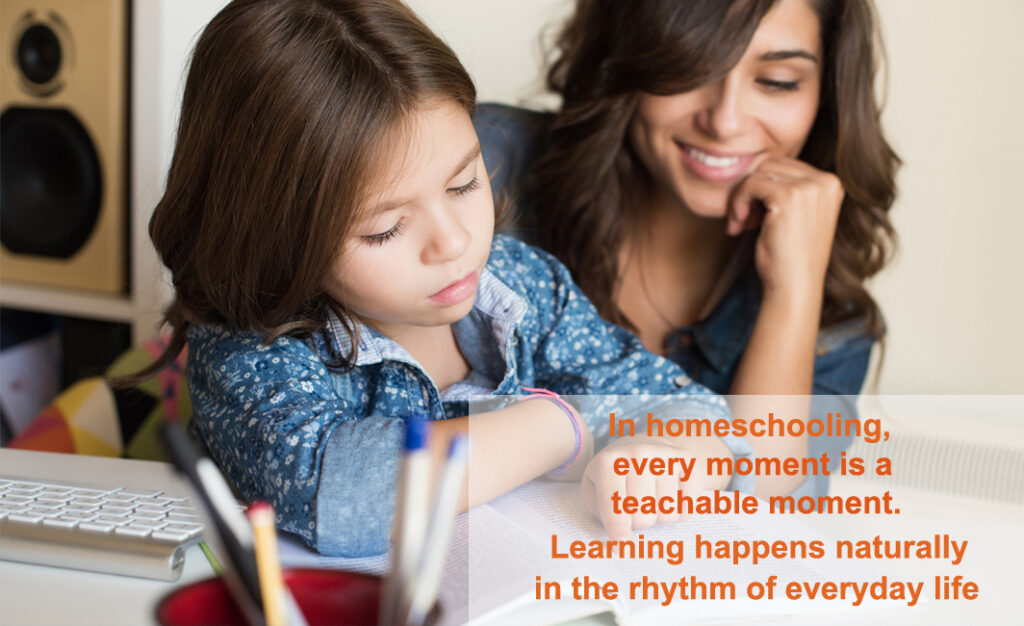Homeschooling, also known as home education, is an educational approach where parents or guardians choose to educate their children at home rather than sending them to a traditional public or private school. In a homeschooling setup, parents take on the role of primary educators, designing and implementing a curriculum tailored to their child’s individual needs, interests, and learning styles.
In homeschooling, parents educate their children at home rather than sending them to a government or private school.
key aspects of homeschooling
- Curriculum
Homeschooling families have the flexibility to select or create their curriculum, which can vary from traditional textbooks to online courses, hands-on projects, field trips, and experiential learning activities. Parents often customize the curriculum to match their child’s pace and preferences.
- Flexibility
One of the primary advantages of homeschooling is flexibility. Families can set their schedules, allowing for more personalized learning experiences and accommodating other commitments such as travel, extracurricular activities, or family events.
- Individualized Instruction
Homeschooling enables parents to provide individualized instruction tailored to each child’s strengths, weaknesses, and interests. This personalized approach can lead to more effective learning outcomes and a deeper understanding of the material.
- Socialization:
Concerns about socialization are often raised regarding homeschooling. However, homeschooling families typically engage in various social activities, including homeschool co-ops, community classes, sports teams, clubs, and social gatherings, to ensure that their children have opportunities to interact with peers and develop social skills.
- Legal Requirements
The legal requirements for homeschooling vary from country to country and even within different regions or states. Some jurisdictions may require parents to register as homeschool educators, submit educational plans, maintain records of attendance and academic progress, and comply with standardized testing or evaluation procedures.
- Challenges
While homeschooling offers many benefits, it also comes with challenges. Parents may face difficulties in balancing their own commitments with teaching responsibilities, providing instruction in subjects they are less familiar with, and ensuring that their children receive a well-rounded education.
Homeschooling has been growing in popularity in many parts of the world over the past several years. Some trends and factors that have contributed to the growth of homeschooling include:
- Increasing Acceptance: Homeschooling has become more widely accepted as a legitimate educational option, with many countries recognizing homeschooling as a legal alternative to traditional schooling.
- Technological Advances: Advances in technology have made homeschooling more accessible and feasible for families, with a wide range of online resources, curriculum materials, and educational tools available.
- Customized Learning: Parents are increasingly interested in providing a personalized education for their children, tailored to their individual needs, interests, and learning styles. Homeschooling allows for greater flexibility and customization in curriculum and teaching methods.
- Concerns About Traditional Education: Some families choose homeschooling due to concerns about the quality of traditional education, safety issues in schools, bullying, or dissatisfaction with the curriculum or teaching methods used in public or private schools.
- Pandemic-Related Impact: The COVID-19 pandemic has also influenced homeschooling trends, with many families opting for homeschooling or remote learning options due to school closures, health concerns, and disruptions to traditional schooling.







